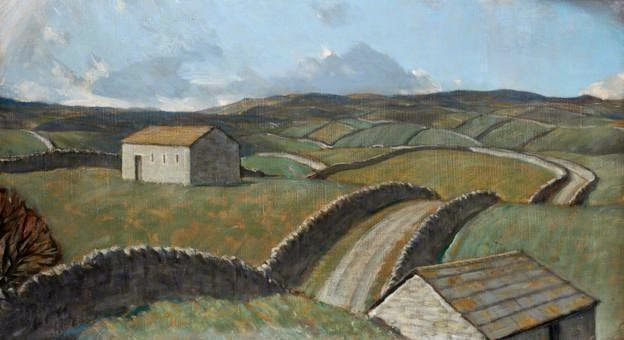It is entertaining, witty, and -- to borrow a word from my previous post -- charming. I will risk being found out as a curmudgeon by saying: "They don't make movies like that anymore!" Well, they don't.
One of its best scenes takes place outside and inside a clattering windmill located on a wide, windy plain, beneath a louring sky, in the Dutch countryside (i.e., in a studio in California). Why do I bring this up? Because I highly recommend both the scene and the movie. And because it provides a segue (however tenuous) to two poems about windmills by Arthur Symons, one of Ernest Dowson's fellow Decadent poets.
Robert Burford (1791-1861)
"View of Chelsea Hospital from the South Bank at Battersea" (1812)
The Windmill
The day is enough for delight;
Why, as I lie on the grass,
And watch the clouds as they pass,
Do I reason of wrong and right?
Only to be, and the breath
I take is all that I need,
Were I but as the flower and weed
That live without thought of death.
But death and right and wrong,
As the windmill turns on the hill
Turn like a burden still
That I cannot cast out of my song.
Arthur Symons, Knave of Hearts (1913).
Symons wrote "The Windmill" in 1906 at the age of 41. Thus, it does not have the youthful melancholy and the free-floating romantic longing that one finds in the typical poems of the Nineties. The century had turned. The moment had passed. And Symons was three years away from a severe mental breakdown.
John Samuel Raven, "A Sussex Mill" (1858)
On the other hand, the following poem does have a classic Decadent feel to it, and not merely because it was written in 1897, and not merely because of its theme of lost love and lacerating memory.
A Tune
A foolish rhythm turns in my idle head
As a windmill turns in the wind on an empty sky.
Why is it when love, which men call deathless, is dead,
That memory, men call fugitive, will not die?
Is love not dead? yet I hear that tune if I lie
Dreaming awake in the night on my lonely bed,
And an old thought turns with the old tune in my head
As a windmill turns in the wind on an empty sky.
Arthur Symons, Images of Good and Evil (1899).
The character of the Nineties is, I think, evident in the sound and rhythm of the poem. For instance: "And an old thought turns with the old tune in my head/As a windmill turns in the wind on an empty sky." Note that the final line is a repetition of the second line. These sorts of repetitions are a typical feature of Nineties poetry: the Decadents were fond of repeating words, phrases, and lines within a poem in order to create a sonorous, dreamlike flow.
And this is wonderful: "Dreaming awake in the night on my lonely bed." A line such as this could almost be viewed as a parody of the Decadent worldview. "Dreaming awake"! But, as I have noted before, I can't help myself: I have a genuine, wholly unironic fondness for the poets of the Nineties.
John Linnell, "The Windmill" (1844)






























